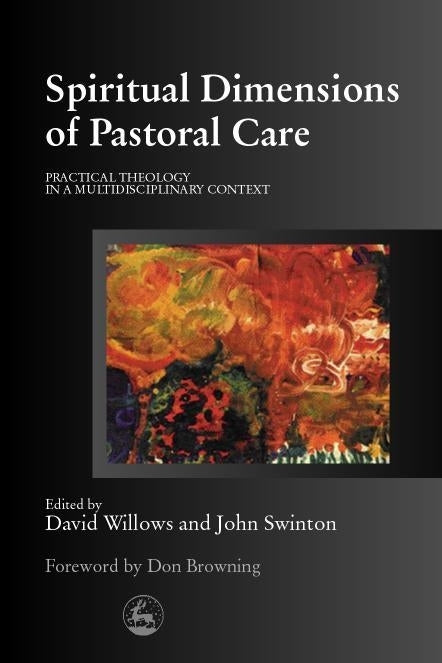
Press Reviews
Leveson Newsletter
The essays cover a wide range of practical and theological issues such as bereavement, sexuality, ethics, learning disabilities, infertility, the meaning of pain, sickness and suffering and the nature of theology as a practical discipline.
Modern Believing
This is a significant book... we have here an important source book and significant history of the key debates in pastoral theology and care over the last 40 years in Britain.
Church Times
David Willows and John Swinton have assembled a collection of essays that illustrate the wide range of concerns of some of those who, in recent decades, have agreed on one thing if nothing else: that theology should do something useful. As Dr. Walton concludes: "This is how theology is done."
Plus (Christian Council on Ageing)
Jessica Kingsley are to be applauded for their expansion into the area of spirituality since social and community work in the UK tends to be secular-based and suspicious of this dimension. Personal growth is to be seen as a process of discovery and the development of spiritual wisdom or " transformational knowledge". Spiritual care must take seriously the "via negativa" experienced by many ageing people in which God seems to be absent. Personal care and support in suffering must not be privatised as to ignore its corporate and political dimensions. An essential tool in pastoral care is the person's own story and transforming power.
Regent's Reviews
Practical theology, however, is an ambitious and largely successful attempt to examine God's ongoing revelation in the daily lives of ordinary people. Pastoral theology, a further development of practical theology is, in the words of James Newton, the study of "human caring as a site of God's incarnation". For those involved in pastoral care who seek to find essays that speak, in theological terms, to the realities of their own lives and to their "caring ministry" this collection of essays will be both informative and useful. The topics covered are both practical and theological and include such issues as bereavement, sexuality, ethics, learning disabilities, infertility, sickness and suffering. 'From its roots in ministerial training, pastoral theology has emerged as a challenging mode of theology which not only applies, but also constructs and clarifies theological understanding, including that of pastoral care. The editors have brought together 22 articles written over a period of 30 years, that help to demonstrate the development and range of pastoral theology. They represent constructive dialogues with other disciplines such as psychology, political studies, educational methodology, and counselling, and the attention to pastoral issues, including suffering, sexuality, and ethics, makes this book a resource for ministers and practitioners. James Mathers encourages a healthy and health-centred society to understand death as a natural part of life. Alastair Campbell examines the therapeutic captivity of pastoral care, where ethical responsibility and structural evil are ignored. Michael Wilson emphasises the same point through challenging pastoral carers to look beyond the individual to the political context and the community relationships. The book ends with a section on Practical Theology as Story, where there is a challenge to creativity in helping people to find their own stories within God's story. We find that we have reached a familiar conclusion as this book on pastoral theology points us toward new ways of being church, in which the vulnerable and the hurting are able to tell their stories and find good news in God's story and amongst God's people.
James Newton Poling, Garrett-Evangelical Theological Seminary
It would be difficult to find a more distinguished collection of authors than the ones in this volume, or a more timely subject - the spiritual revelations that God gives to common believers. For too long, theology has been dominated by historical and philosophical studies, which, though valuable, often ignore the fact that God has yet more truth to reveal to the world. Practical theology is the study of God's ongoing revelations of love and power in the daily lives of ordinary people. Pastoral theology is the study of human caring as a site of God's incarnation. This volume promises to move all theology forward in its carefully developed and often inspiring essays on the spiritual dimension of pastoral care.
